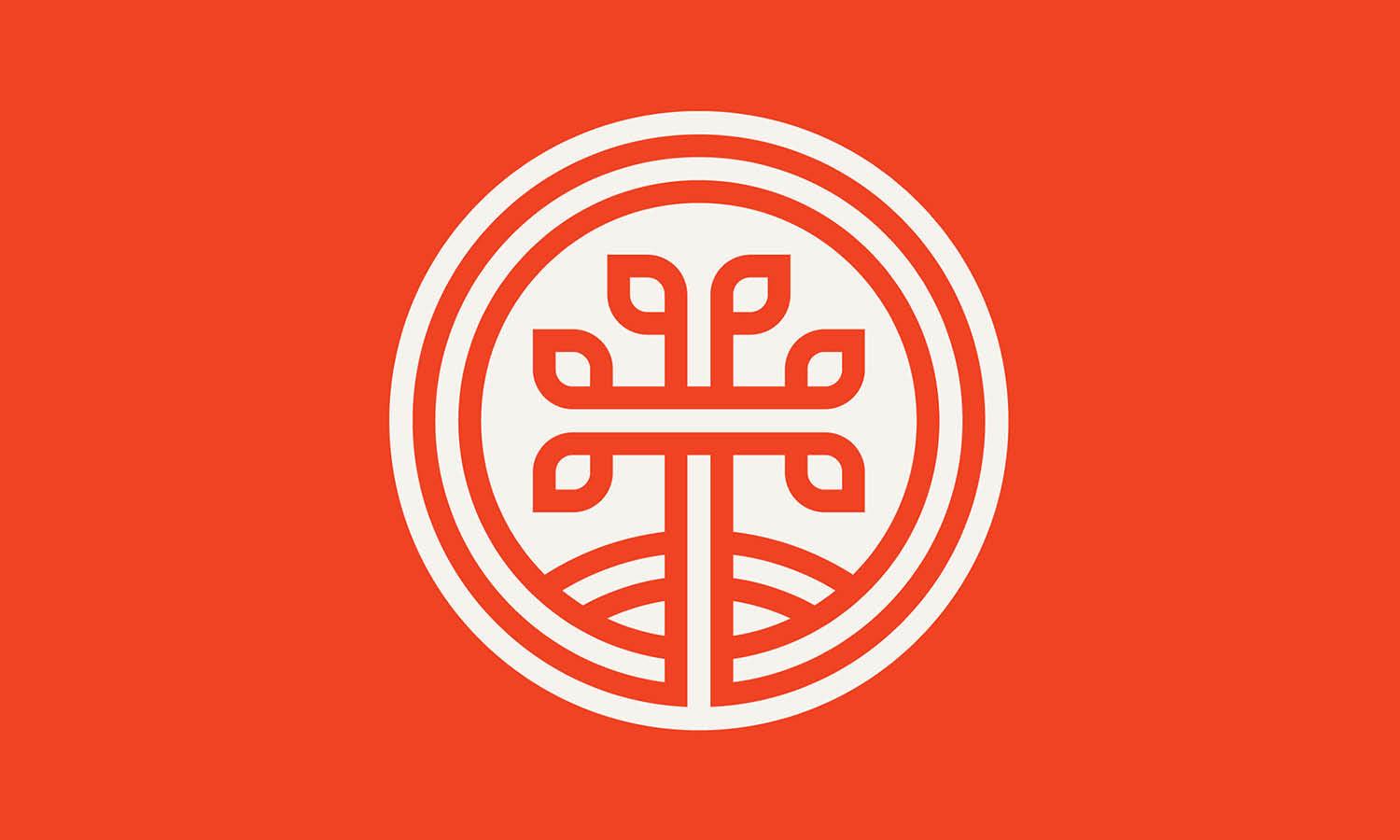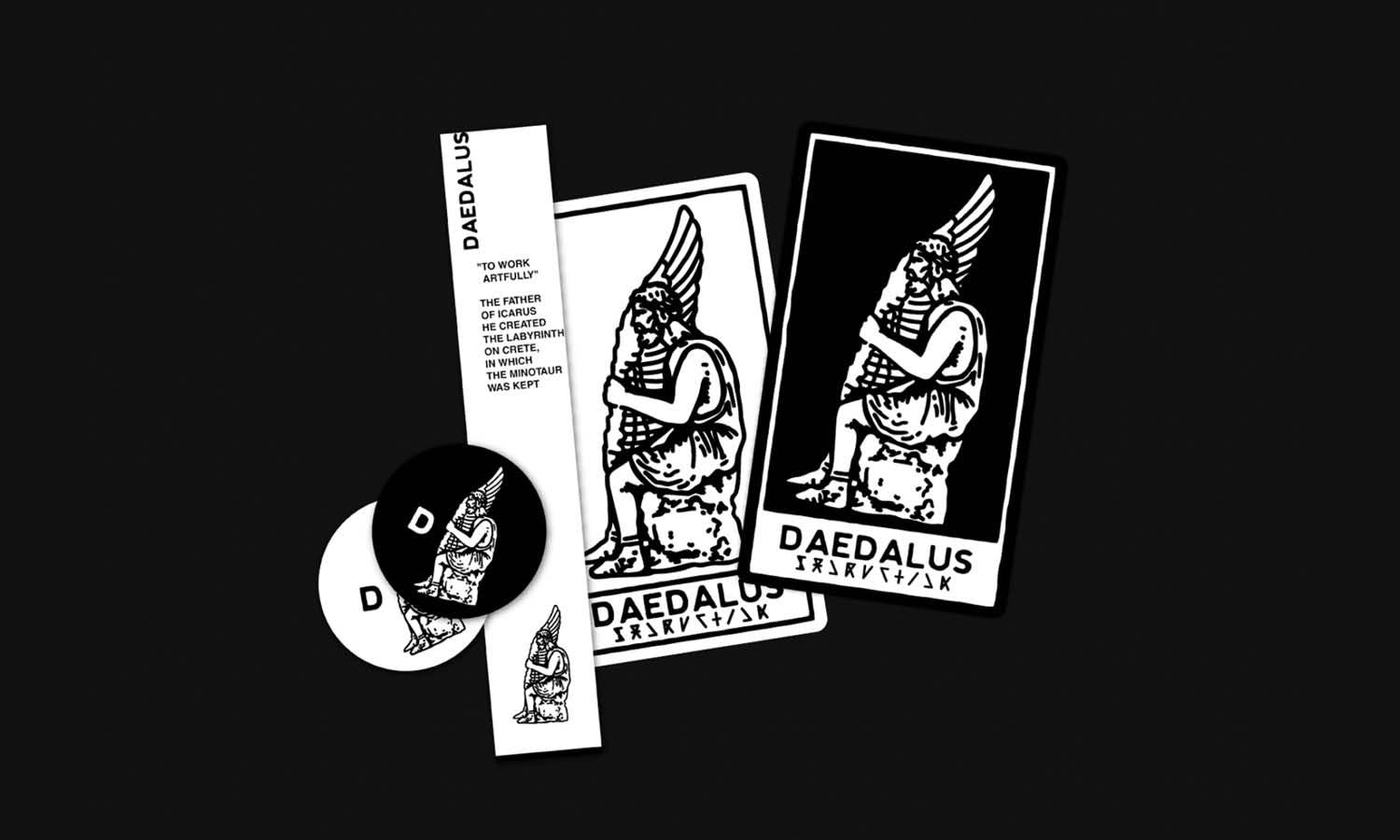30 Best Arabic Logo Design Ideas You Should Check

Source: Luka Zarandia, Street Calligraphy, Dribbble, https://dribbble.com/shots/15074827-STREET-CALLIGRAPHY
Arabic logo design is more than just a visual identity—it’s an art form that blends heritage, culture, and modern creativity. When crafted thoughtfully, it communicates elegance, sophistication, and a strong sense of tradition. What makes these logos stand out is the unique use of Arabic calligraphy, geometric patterns, and symbolic motifs that speak volumes without saying a word. Whether it’s for fashion, hospitality, technology, or lifestyle brands, this design style has the power to elevate a brand’s image instantly.
The best Arabic logo design ideas often strike a balance between cultural authenticity and contemporary flair. From flowing calligraphic scripts that showcase artistic beauty to bold, minimalist interpretations that reflect modern aesthetics, these logos can adapt to a wide variety of industries. Many designs also incorporate traditional elements like crescents, stars, or intricate tessellations, creating a sense of identity and timeless charm.
This article will highlight some of the most impressive Arabic logo design inspirations worth checking out. If you’re searching for ideas that merge tradition with innovation, you’ll find plenty of creativity here. Expect logos that are sleek, meaningful, and versatile—perfect for brands wanting to stand out with cultural depth and visual impact.
Arabic Logo Design Ideas

Source: Tatiana Fedorova, Zohoor, Behance, https://www.behance.net/gallery/163276639/Zohoor

Source: Mohamed Farid, Amkenah, Behance, https://www.behance.net/gallery/159624885/Amkenah-Branding

Source: Jowel Ahmed, Dribbble, https://dribbble.com/shots/20283714-Arabic-Logo

Source: Roar Agency, Bride's Car, Behance, https://www.behance.net/gallery/201698437/Brides-Car-I-Brand-Identity-I

Source: Mohanad Mohamed, Raseem Winter, Behance, https://www.behance.net/gallery/221130339/Raseem-Winter-Saudi-Winter-Event

Source: UNCADR Studio, Sahand Music Academy, Dribbble, https://dribbble.com/shots/14905051-Sahand-Music-Academy

Source: Marwa Ali, Cairo Rebranding, Behance, https://www.behance.net/gallery/205652721/Cairo-Rebranding

Source: Md. Nazim-Uz-Zaman, Arabic Calligraphy Logo, Behance, https://www.behance.net/gallery/176237383/Arabic-Calligraphy-Logo

Source: Mochamad Arief, Islamic Calligraphy Tawheed, Dribbble, https://dribbble.com/shots/17452647-Islamic-Calligraphy-Tawheed

Source: Wiktor Ares, Башня (Tower), Dribbble, https://dribbble.com/shots/20095330--Tower

Source: Kinda Ghannoum, Mohammar, Behance, https://www.behance.net/gallery/233555371/Mohammar

Source: Roqayah Al Nasif, Bakeer, Behance, https://www.behance.net/gallery/226145919/BAKEER-RESTAURANT-TEA-HOUSE-SAUDI-ARABIA

Source: Yasmine Nagy, Qahwa House, Behance, https://www.behance.net/gallery/234162077/Qahwa-House-Brand-Identity-Saudi-Arabia

Source: Adnan Haj Ali, Mangam, Dribbble, https://dribbble.com/shots/6840233-Mangam-Logo

Source: Omar Badr, Bab Tamr, Behance, https://www.behance.net/gallery/182837179/Bab-Tamr-Branding-Packaging-Design

Source: Jowel Ahmed, Muslimate, Dribbble, https://dribbble.com/shots/18562044-Organization-Logo-Design

Source: Arabic Calligrapher, Arabic Calligraphy Logos (Square), Dribbble, https://dribbble.com/shots/16680706-Arabic-Calligraphy-in-squire-shape-Arabic-Calligraphy-logos

Source: Umar Kuzhev, Taiba Academy, Behance, https://www.behance.net/gallery/158503747/Taiba-Academy-Logo-design

Source: Saad, Jalal+Jamal, Dribbble, https://dribbble.com/shots/10038700-Jalal-Jamal

Source: Jowel Ahmed, Luxury Logo, Dribbble, https://dribbble.com/shots/14956560-Luxury-logo

Source: Paul Rover, LLC Monogram Arabic Calligraphy, Dribbble, https://dribbble.com/shots/14311427-LLC-monogram-arabic-calligraphy

Source: Akrout Khaled, Karama, Behance, https://www.behance.net/gallery/135306419/KARAMA-Logo-proposal

Source: Reza Bakhtiarifard, Manzoom, Dribbble, https://dribbble.com/shots/11116307-Manzoom

Source: At Logography, Arabic Calligraphy Logo Design, Dribbble, https://dribbble.com/shots/20343251-Arabic-Calligraphy-Logo-Design

Source: Saif Zain, Mohob موهوب, Behance, https://www.behance.net/gallery/206282127/Mohob-

Source: Mochamad Arief, Allah (God), Dribbble, https://dribbble.com/shots/17414150-Islamic-Calligraphy-Allah-God

Source: Abdullah Samir, Krnaf, Behance, https://www.behance.net/gallery/213032841/KRNAF-Branding

Source: Arabic Calligrapher, Tamrini, Dribbble, https://dribbble.com/shots/7327987-Arabic-Logo-Design-Tamrini

Source: Miras Akhmetov, Jibek Joly Mosque, Behance, https://www.behance.net/gallery/172500379/Jibek-Joly-Mosque-Logotype

Source: Luka Zarandia, Street Calligraphy, Dribbble, https://dribbble.com/shots/15074827-STREET-CALLIGRAPHY
What Are the Key Elements of Arabic Logo Design?
Diving into the world of Arabic logo design is like opening a treasure chest of artistic elements, each shimmering with its unique charm and significance. If you're gearing up to create a logo that speaks volumes in Arabic, knowing the key ingredients can turn a simple design into an emblem of cultural richness. Here are the five essential elements that will ensure your Arabic logo design isn’t just seen but remembered!
Calligraphy
The soul of Arabic logo design lies in its calligraphy. Arabic script is renowned for its flowing, intricate beauty, which can convey elegance and sophistication. Utilizing styles like Kufic or Naskh not only pays homage to a storied tradition but also adds a timeless aesthetic to the logo. The artistry of Arabic calligraphy allows for a high degree of customization, making each logo distinct and deeply personal.
Color Palette
Colors are not just decoration—they carry meanings and emotions. In Arabic design, color symbolism plays a pivotal role in conveying the essence of the brand. For instance, green often represents peace and prosperity and is widely used due to its significance in Islamic culture. Choosing the right colors can enhance the appeal of the logo to its specific audience, ensuring that it resonates both culturally and emotionally.
Iconography
The integration of traditional Arabic and Islamic icons into logo design can significantly enhance its cultural relevance. Symbols like the crescent, geometric patterns, or even architectural elements like the arches of a mosque, can be stylized and incorporated into the logo. These symbols help communicate the brand’s identity and values, making the design more engaging and meaningful.
Symmetry and Geometry
Arabic art and architecture are famous for their use of balanced geometric patterns. This symmetry isn’t just aesthetically pleasing; it represents harmony and order. Including geometric motifs in an Arabic logo design not only appeals to the eye but also evokes a sense of stability and reliability, qualities that are beneficial for brand perception.
Adaptability
A great Arabic logo design is versatile, capable of being adapted across various media and scales without losing its essence. This is particularly important in today’s digital age, where a logo must be recognizable at different sizes and across different platforms. Ensure that your Arabic logo is scalable, looks good in both color and black and white, and is as impactful on a business card as it is on a billboard.
Each of these elements contributes to creating an Arabic logo design that’s not just seen, but also felt and remembered. By weaving together calligraphy, color, iconography, symmetry, and adaptability, you can craft a logo that truly represents the brand’s ethos while echoing the rich artistic heritage of the Arabic culture. So, let your creativity flow, mix these ingredients with your unique style, and watch your Arabic logo design come alive!
What Shapes Work Best In Arabic Logo Design?
Shapes hold an incredible power in Arabic logo design, transforming simple ideas into rich visual stories. From timeless geometry to flowing organic forms, shapes play a crucial role in enhancing cultural depth and making a brand instantly recognizable. The beauty of this design style lies in how traditional elements are reimagined with a fresh, modern twist. Let’s dive into five shapes that work wonders when building strong and stylish Arabic-inspired logos.
Geometric Patterns For Structure
One of the most iconic aspects of Arabic logo design is the use of geometric shapes. Circles, hexagons, and stars often come together to form mesmerizing tessellations. These patterns symbolize unity, infinity, and balance—perfect for brands that want to convey harmony and sophistication. The repetition of shapes creates a structured yet visually captivating identity that feels both timeless and contemporary.
Crescents For Cultural Symbolism
The crescent shape has a long-standing connection with Arabic culture, making it a meaningful element in logos. It reflects tradition while carrying a soft, graceful aesthetic. Whether paired with stars or integrated into typography, crescents bring a touch of cultural authenticity. They also add elegance and fluidity, making them ideal for hospitality, wellness, and community-focused brands.
Calligraphic Curves For Flow
While not a “shape” in the conventional sense, curves drawn from Arabic calligraphy play a massive role in logo identity. These organic, sweeping lines add movement and fluidity, symbolizing creativity and artistry. By incorporating stylized curves, designers can bring personality and uniqueness into Arabic logo design, turning letters into visual art that resonates with both cultural heritage and modern flair.
Stars For Inspiration And Brilliance
Stars are another popular shape in Arabic logo design, often paired with crescents or geometric backgrounds. Beyond their celestial beauty, stars represent guidance, brilliance, and hope. A single star can highlight simplicity and direction, while multiple stars create a radiant and inspiring feel. They’re especially effective for educational, artistic, or visionary brands wanting to shine bright in their field.
Circles For Unity And Perfection
Circles have universal appeal, but in Arabic logo design they hold special meaning. Representing wholeness, community, and eternity, circles act as a grounding shape that ties elements together. Designers often use circular frames to house calligraphy, patterns, or symbols, giving the logo balance and harmony. Circles also allow for versatility, easily adapting to modern or traditional branding styles.
Shapes in Arabic logo design are not just decorative—they’re storytelling tools. From structured patterns to flowing calligraphic lines, every curve and angle can express culture, elegance, and identity. By thoughtfully blending these shapes, a logo can capture both the richness of tradition and the excitement of modern innovation.
What Are the Popular Styles of Arabic Logo Design?
Arabic logo design is a fascinating blend of tradition and modernity, where each style speaks volumes about the rich cultural heritage behind it. Diving into the world of Arabic logos is like embarking on a design odyssey, with each style offering a unique story and visual appeal. Here are five popular styles that stand out in the realm of Arabic logo design, each with its distinct charm and creative potential.
Calligraphic Flourish
At the heart of Arabic logo design lies the art of calligraphy, revered for its beauty and precision. This style often incorporates flowing, script-based elements that mimic historical handwriting. The fluidity of Arabic calligraphy lends a sense of elegance and sophistication to logos, making it a popular choice for brands that wish to convey a sense of heritage and luxury. Designers can play with various calligraphic scripts like Kufic, Diwani, or Thuluth to bring a historical touch to modern brands.
Geometric Intricacy
Geometry is not just about shapes; in Arabic logo design, it’s about weaving stories through intricate patterns. This style often features complex geometric forms that are mathematically precise. The use of stars, polygons, and meticulously interlaced lines not only catches the eye but also symbolizes the brand's attention to detail and precision. Ideal for tech companies or architectural firms, this style bridges the gap between ancient art forms and contemporary aesthetic demands.
Modern Minimalism
Who says Arabic designs have to be intricate? The modern minimalist approach to Arabic logo design proves that simple can be impactful. This style typically employs clear, concise letterforms and does away with excessive detailing, which can be particularly effective in today's digital age. Minimalist Arabic logos are often versatile and scalable, making them suitable for various applications, from app icons to billboards.
Iconographic Imagery
Incorporating traditional symbols and icons alongside Arabic typography, this style of logo design often tells a more literal story. Whether it’s a palm tree, a desert silhouette, or a traditional dhow, these images connect the logo to specific cultural or geographical narratives. This style is perfect for brands that want to highlight their regional roots or cater to a market that values cultural symbolism.
Colorful Expressions
While not a style per se, the strategic use of color in Arabic logo design deserves a mention. Colors in Arabic culture can carry deep meanings, such as green reflecting fertility and harmony, or gold representing luxury and high quality. A splash of color can transform a traditional Arabic logo into a more vibrant and eye-catching design, making it more relatable to a global audience.
Each of these styles offers a unique way to leverage the artistic richness of Arabic script and cultural motifs. Whether a brand opts for the elegance of calligraphy, the precision of geometric patterns, the simplicity of minimalism, the clarity of iconography, or the vibrancy of color, Arabic logo design provides a versatile and compelling way to communicate a brand's identity. With creativity as their guide, designers can blend these styles to create standout logos that are not only memorable but also deeply meaningful.
What Fonts Are Best for Arabic Logo Design?
Choosing the perfect font for your Arabic logo design is like selecting the right spice for a delicious meal—it enhances the flavor and leaves a lasting impression. Arabic typography offers a beautiful spectrum of script styles, each bringing its unique flair and character to the table. Here are five fabulous font types that will not only boost the aesthetic appeal of your Arabic logo design but also ensure it communicates your brand's essence effectively.
Naskh Script
A classic choice, Naskh is widely favored for its legibility and simplicity. Originating in the 10th century, this font is a staple in Arabic print media due to its clear, straightforward style. Naskh’s versatility makes it a fantastic option for brands looking for a modern yet approachable look. It works wonderfully across all digital and print media, ensuring your logo is versatile and easily recognizable.
Thuluth Script
If you’re aiming for drama and elegance, Thuluth is your go-to font. Known for its large, sweeping curves and elongated verticals, Thuluth was traditionally used in medieval manuscripts and architectural decoration. This font is perfect for brands that want to emphasize luxury, heritage, and sophistication. It’s a bold choice that makes any logo stand out with its artistic and intricate design.
Kufic Script
For those who love geometric precision, Kufic is the oldest calligraphic form of the various Arabic scripts and is celebrated for its angular, linear style. This font is ideal for logos that require a compact and impactful look, often used in seals, coins, and logos that need to convey strength and stability. Modern Kufic variations can add a contemporary edge to your design, making it crisp and distinctive.
Diwani Script
Diwani is flamboyant and expressive, known for its complex curves and decorative shapes. Originally developed for the Ottoman royal court, this script flows beautifully and is perfect for creating a luxurious, artistic logo. Use Diwani when you want your brand to exude creativity, exclusivity, and a touch of historical grandeur. It’s particularly effective for brands in the fashion, arts, and luxury sectors.
Ruq’ah Script
Ruq'ah is the practical choice for straightforward, readable Arabic logo designs. It's the everyday script, characterized by its rounded, short letters and minimalistic appeal. This font is ideal for businesses looking for a modern, friendly logo that’s easy on the eyes and works great for more casual or consumer-focused brands. Ruq’ah’s simplicity and modern vibe make it suitable for a wide range of applications, from corporate branding to retail.
When choosing a font for your Arabic logo design, think about the personality of your brand and the message you want to convey. Each of these fonts can be customized and stylized to fit your specific needs, making your logo not just a name but a story told in visually captivating script. Remember, the right font will not only enhance the design but also ensure that your brand resonates with its audience on a deeper level.
What Colors Work Best in Arabic Logo Design?
Color in Arabic logo design isn’t just about aesthetics—it’s a powerful tool that can evoke emotions, convey messages, and connect with cultural values. Picking the right palette for your Arabic logo design can be as thrilling as a spice bazaar, each color offering a different flavor and sensation. Here are five colors that resonate deeply within Arabic culture and aesthetics, making them top picks for your next design project.
Green
Often hailed as the most significant color in many Arabic and Islamic cultures due to its association with paradise in Islamic art and scripture, green is a symbol of tranquility, prosperity, and renewal. For any brand looking to establish trust and an eco-friendly image, green is a go-to color that pairs beautifully with Arabic script, lending a fresh and serene vibe to the logo.
Blue
Representing immortality, protection, and spirituality, blue is another color deeply embedded in Arabic culture. From the turquoise tiles of the Great Mosque of Samarra to the majestic lapis lazuli adorning the Dome of the Rock, blue has a historic presence in Islamic art. It’s perfect for brands wanting to convey a sense of security and calm, or those in the technology and healthcare sectors where trust and reliability are crucial.
Gold
Nothing says luxury and quality like gold. In Arabic logo design, gold can be used to signify not only wealth but also high quality and elite status. It is especially popular in logos for luxury brands, premium products, and high-end services. Gold stands out particularly well against darker backgrounds, making it a striking choice for any business that wants to highlight its prestige and excellence.
Black
Black is a powerful and compelling color in the context of Arabic logo design. It represents strength, authority, and sophistication. It is often used in typography to provide stark contrast and make other elements of the design pop. Black can give your logo a modern, bold, and authoritative look, ideal for corporate businesses or those looking to make a strong impression.
White
White is the color of purity, simplicity, and peace. In many Arab cultures, it represents cleanliness and humility, making it an excellent choice for health-related businesses, educational institutions, and charitable organizations. White works well in logo design for creating a minimalistic, clean look that communicates clarity and openness.
When selecting colors for an Arabic logo design, consider the psychological impact and cultural significance of each hue. Think about the emotions you want to evoke in your audience and the personality of your brand. A well-chosen color palette can transform your logo into a vibrant visual story that speaks directly to your target audience, enhancing the overall impact of your brand identity.
Conclusion
Arabic logo design thrives on the power of shapes that carry both cultural meaning and visual elegance. Geometric patterns highlight precision and balance, crescents evoke tradition and grace, while calligraphic curves add creativity and flow. Stars bring inspiration and brilliance, and circles tie everything together with harmony and unity. Each shape has its own symbolic value, allowing brands to craft identities that feel authentic, timeless, and visually captivating. By embracing these shapes, designers can create logos that not only look striking but also reflect the rich cultural depth embedded in Arabic logo design.
Let Us Know What You Think!
Every information you read here are written and curated by Kreafolk's team, carefully pieced together with our creative community in mind. Did you enjoy our contents? Leave a comment below and share your thoughts. Cheers to more creative articles and inspirations!
















1 comment
This is just too beautiful. Thank you for sharing this!
Ana
Leave a Comment